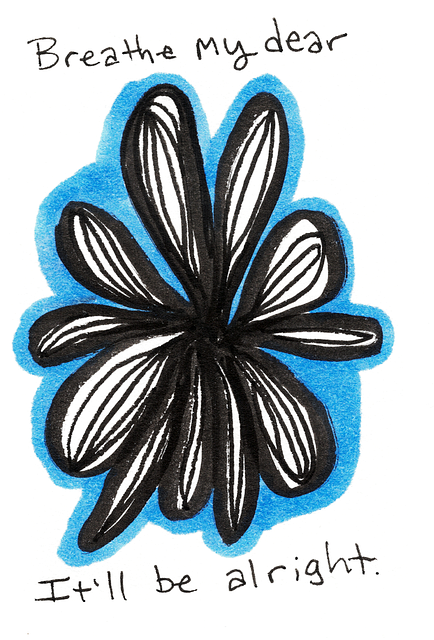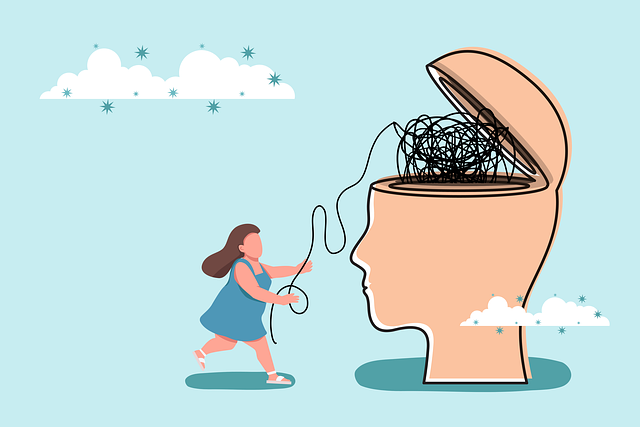Lone Tree Chronic Illness Therapy highlights the dangers of chronic stress, a common struggle for those with LTCI who face physical and emotional challenges. They emphasize the importance of recognizing stress triggers, implementing communication strategies, building resilience, and practicing self-care through lifestyle changes like exercise and diet. The therapy offers crisis intervention, social skills training, and positive thinking techniques to develop healthy coping mechanisms. By integrating risk management planning and holistic healing methods, LTCI patients can manage symptoms, improve mental health outcomes, and cultivate resilience for a better quality of life.
Stress reduction is an essential aspect of maintaining overall well-being, especially for those managing chronic illnesses. In today’s fast-paced world, understanding and addressing stress have become critical. This article explores various methods to combat stress, offering insights from a unique perspective—Lone Tree Chronic Illness Therapy. We’ll uncover common stressors in modern life, provide lifestyle changes, and discuss therapeutic approaches tailored to this specific context, ultimately guiding readers toward long-term strategies for a calmer mind.
- Understanding Stress and its Impact on Overall Well-being
- Common Stressors in Modern Life: A Lone Tree Chronic Illness Perspective
- Lifestyle Changes for Effective Stress Reduction
- Exploring Therapeutic Approaches: Lone Tree Chronic Illness Therapy Techniques
- Building Resilience: Long-term Strategies for a Calm Mind
Understanding Stress and its Impact on Overall Well-being

Stress is a natural response to challenging situations, but when it becomes chronic, it can significantly impact overall well-being. Lone Tree Chronic Illness Therapy highlights that prolonged stress can lead to various physical and mental health issues, affecting one’s quality of life. It influences both our emotional state and bodily functions, causing increased heart rate, elevated blood pressure, and even weakening the immune system over time.
Understanding the impact of stress is crucial in developing effective coping mechanisms. Mental health professionals often emphasize the importance of recognizing personal triggers and implementing communication strategies to manage stress levels. Resilience building techniques, combined with risk management planning, can empower individuals to navigate stressful situations and promote better mental health outcomes.
Common Stressors in Modern Life: A Lone Tree Chronic Illness Perspective

In today’s fast-paced and often demanding world, various stressors have become increasingly prevalent in modern life. From work pressures and financial constraints to personal relationships and health issues, individuals across different demographics face unique challenges that contribute to heightened stress levels. For those living with a Lone Tree Chronic Illness (LTCI), these stressors can be particularly daunting and multifaceted. LTCI patients often grapple with the physical and emotional toll of their conditions while also managing various aspects of daily life, including work, family responsibilities, and personal well-being.
The impact of chronic illness on mental health cannot be overstated. The constant management of symptoms, medical appointments, and the uncertainty that often accompanies LTCI can lead to significant stress and anxiety. Moreover, social isolation is a common issue among this population, as they may find it challenging to maintain social connections or participate in activities due to their health constraints. To address these concerns, various initiatives like Stress Management Workshops Organization and Mental Wellness Coaching Programs Development have emerged as valuable resources. Encouraging individuals to prioritize self-care through tailored routines can significantly enhance their ability to cope with stress and improve overall mental health.
Lifestyle Changes for Effective Stress Reduction

Making lifestyle changes can significantly contribute to effective stress reduction. Incorporating regular physical activity, maintaining a balanced diet, and prioritizing adequate sleep are essential components of this approach. Regular exercise, such as jogging or yoga, releases endorphins that promote feelings of happiness and relaxation, helping to mitigate the impact of stressful situations. Similarly, a well-nourished body enhances overall well-being, making it easier to cope with daily demands. Adequate rest is crucial for restoring mental and physical energy levels, enabling individuals to better navigate challenging circumstances.
In addition to these practices, seeking professional guidance can be immensely beneficial. Lone Tree Chronic Illness Therapy offers crisis intervention services tailored to meet individual needs. Social skills training and positive thinking techniques are also valuable tools in managing stress. By fostering healthy coping mechanisms, these strategies empower individuals to lead more balanced and resilient lives.
Exploring Therapeutic Approaches: Lone Tree Chronic Illness Therapy Techniques

In the realm of Lone Tree chronic illness therapy, exploring therapeutic approaches becomes a crucial task for mental health professionals. This involves delving into various techniques designed to alleviate stress and promote holistic healing. One effective method is integrating communication strategies that foster open dialogues between patients and therapists. By encouraging honest expressions of feelings and experiences, these sessions create a safe space, enhancing the patient’s sense of agency and empowerment.
Additionally, Lone Tree chronic illness therapy often incorporates risk management planning as a proactive measure. This involves identifying potential triggers and developing coping mechanisms to prevent relapse or exacerbation of symptoms. Through tailored interventions, therapists guide patients in managing stress, anxiety, and depression, ultimately improving their quality of life. Such comprehensive approaches not only address the physical aspects but also nurture mental resilience, ensuring better long-term outcomes.
Building Resilience: Long-term Strategies for a Calm Mind

Building resilience is a crucial long-term strategy for maintaining a calm mind in the face of life’s challenges, including managing chronic illnesses. Lone Tree Chronic Illness Therapy emphasizes that developing mental fortitude allows individuals to adapt and recover more effectively from stressful situations. This involves cultivating healthy coping mechanisms, such as mindfulness practices, regular physical activity, and a strong support network. By integrating these strategies into daily routines, people can enhance their ability to navigate difficult circumstances without succumbing to anxiety or depression.
In the context of mental health professionals, risk management planning is essential for personal well-being. Effective risk mitigation involves not only professional development and supervision but also prioritizing self-care practices that reduce stress and prevent burnout. Mental Health Policy Analysis and Advocacy play a vital role in creating supportive systems, ensuring access to resources like therapy services and promoting mental health awareness on a broader scale. These comprehensive approaches empower individuals to build resilience, fostering a sense of control and enhancing overall mental health.
In navigating life’s challenges, especially with a Lone Tree chronic illness perspective, stress reduction methods are indispensable tools. By understanding the impact of stress on overall well-being and adopting effective lifestyle changes, individuals can enhance their resilience. Exploring therapeutic approaches, such as Lone Tree chronic illness therapy techniques, offers tailored support for managing stress. Ultimately, building long-term strategies for a calm mind is key to fostering a healthier, more balanced life.














